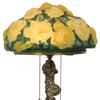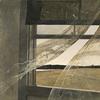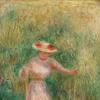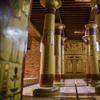Explore How Daubigny Trailblazed for the Impressionists and Van Gogh
- AMSTERDAM, Netherlands
- /
- October 20, 2016
Opening Oct. 21, a Van Gogh Museum exhibition highlights the crucial role that the French artist Charles François Daubigny played as an innovator of nineteenth-century landscape art and a trailblazer for the Impressionists. There are a great number of works to be seen by Daubigny, Vincent van Gogh and Impressionists like Claude Monet and Camille Pissarro, from more than thirty-five international museums and private collections. Daubigny, Monet, Van Gogh: Impressions of Landscape takes a new look at the origins of Impressionism; placing Daubigny’s oeuvre in the context of this movement restores his role as a ground-breaking artist and a source of inspiration to its rightful position.
Father of the Impressionists
Charles François Daubigny (1817 - 1878) was one of the leading French landscape painters of the nineteenth century. He created an impressive oeuvre, taking painting in new directions. His fondness for painting landscapes in the open air and his innovative, sketchy painting technique paved the way for the work of the Impressionists. Daubigny’s studio home in Auvers-sur-Oise became a place of pilgrimage for countless artists, Vincent van Gogh (1853 - 1890) among them.
And yet today Daubigny is almost unknown to the general public. He is one of the many early nineteenth-century artists who were overshadowed by the success of the Impressionists. The Van Gogh Museum is putting this situation to rights in Daubigny, Monet, Van Gogh: Impressions of Landscape.
Progressive and Free
Daubigny’s personal approach to the landscape made a great impression on the young painters who would later be drawn to Impressionism. His threatening skies and impressive sunsets on the Normandy coast were emulated by Claude Monet (1840-1926), while Camille Pissarro (1830-1903) was inspired by his orchards in bloom. Daubigny was not only a source of inspiration: he also used his position and contacts in the Parisian art world to help this new generation of artists forge a career.
Paintings by Monet and Pissarro show how Daubigny inspired the young Impressionists in the 1860s. In the 1870s Daubigny, like the Impressionists, started to experiment with brighter colours and capturing fugitive impressions of nature. One striking example is the painting Setting Sun near Villerville (1874, The Mesdag Collection, The Hague), which hangs side by side in the exhibition with Monet’s Sunset on the Seine near Lavacourt, Winter Effect (1880, Petit Palais, Paris).
Le Botin Studio Boat
Daubigny sailed his studio boat Le Botin along French rivers so he could record the landscape from midstream. These trips generated original compositions and atmospheric river views that brought him fame and commercial success and found a following among the Impressionists. The Van Gogh Museum is presenting a modern multimedia variant of Daubigny’s studio boat created especially for the exhibition; visitors can experience painting on water for themselves through film, audio and various artefacts.
Van Gogh and Daubigny
Van Gogh admired the way the French master strove for realism and infused his landscapes with personal feeling. In 1890, Van Gogh spent the last months of his life in Auvers-sur-Oise, where Daubigny had lived and worked. Like the French artist, Van Gogh painted the traditional village houses and the nearby cornfields. He made several paintings in the garden of Daubigny’s former house that can be regarded as a homage to the artist, among them Daubigny’s Garden (1890, Rudolf Staechelin Collection).
Drawing the Landscape
In the mid-nineteenth century more and more artists went outside to draw the landscape. They drew their inspiration from nature and seized on the increasing quality and variety of drawing materials. This is evident in the atmospheric nature scenes of the Barbizon School, and Vincent van Gogh’s expressive fields. In parallel to Daubigny, Monet, Van Gogh: Impressions of Landscape, the finest drawings of the French landscape in the Van Gogh Museum’s own collection will be on display in the Print Room.
International Collaboration
Daubigny, Monet, Van Gogh: Impressions of Landscape is a collaboration between the Van Gogh Museum in Amsterdam, The Mesdag Collection in The Hague, The Taft Museum of Art in Cincinnati and The National Galleries of Scotland in Edinburgh. The exhibition includes loans from more than thirty-five museums and private collections in Europe and the United States, among them the Tate and The National Gallery in London, The Metropolitan Museum of Art in New York and Musée d’Orsay and Petit Palais in Paris.
Publication and Lecture Programme
A lavishly illustrated book in Dutch and English about the interaction between Daubigny and the Impressionists, his innovative approach and his influence on Van Gogh is being published to coincide with the exhibition: 176 pages, €24.95. Curators and conservators talk about the exhibition in free lectures on Sundays. For more information, go to www.vangoghmuseum.com/daubigny.









100x100_c.jpg)



